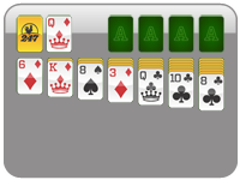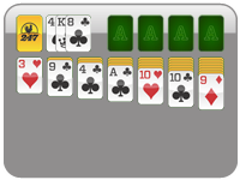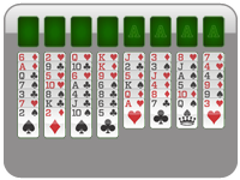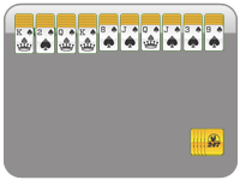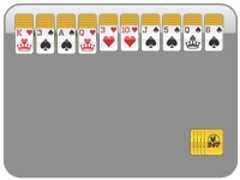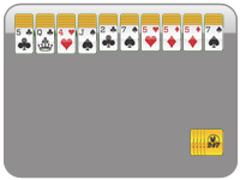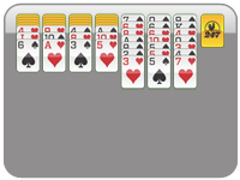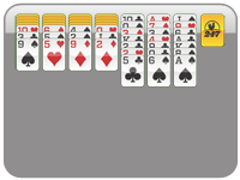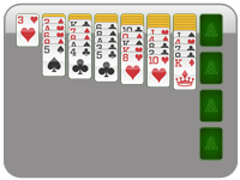How Many Tricks can you Make in Spades?
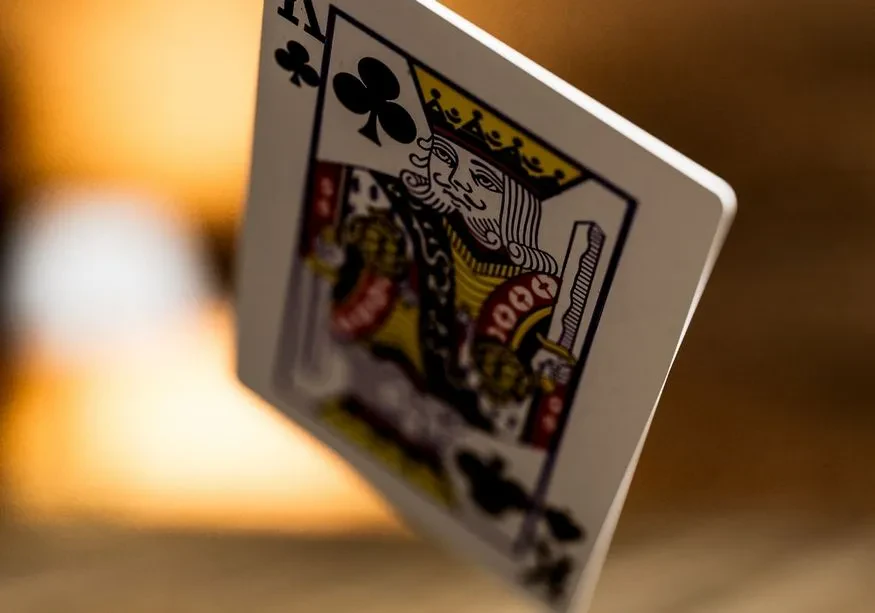
Do you know how many tricks in spades you should wager? If you find yourself constantly overestimating, then that part of your game might need some work. Knowing how many spades tricks to estimate for yourself is a skill that will only improve with practice, but knowing a few tips can help you on that journey. This guide will show you how to break down your hand and predict how many tricks you can realistically make, so you bid smarter and win more games.
What Is a Trick in Spades and Why It Matters
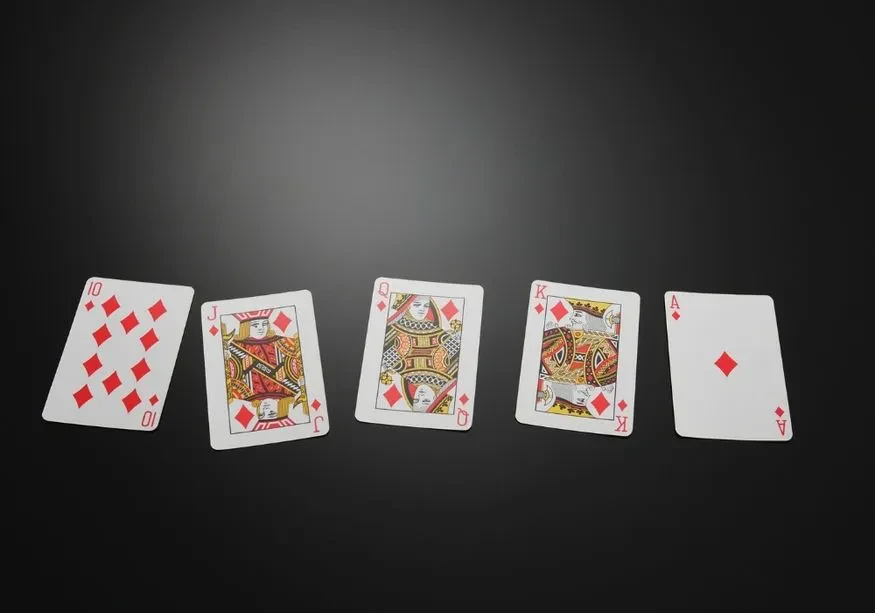
Let’s start with a reminder of the basics: what are tricks in spades? Simply put, a spades game consists of rounds where each player plays a single card following the suit of the first card played. We’ll get into more of how to win a trick and the purpose they serve below.
The Basics of Trick-Taking
As described above, each player plays one card per round, and the highest card of the led suit wins the trick. Spades are the trump card, though. That means they beat all other suits when played. (So your 2 of spades could easily beat a king of diamonds if no one else plays a spade.) Your goal is to win at least as many tricks as the number you bid at the beginning. So if you bid five tricks, your goal should be to win five tricks.
Winning more than you bid isn’t a bad thing, but those extra tricks won’t be worth much. Say you bid five tricks but win seven. You’d get 10 points per trick for the first five (or 50 points) but only one point per trick for the last two for a total of 52 points. But if you don’t keep an eye on your extra tricks (called overtricks) and keep winning until you hit more than 10, then you’ll get a 100-point penalty.
How Many Total Tricks Are in a Game?
The answer is a little trickier than you might think at first because there isn’t a set number of rounds per game. That’s because games end once someone reaches a specific number of points. The standard point total to win is 500, though 200 is often used for shorter games.
Each round will have 13 tricks because there are four players who each have 13 cards and everyone will need to play every card in their hand. The game can also be played solo or in pairs. When you’re working with a duo, 6–7 tricks per team is a pretty realistic bid. If you’re solo, then you might want to aim a little lower like 3–4 tricks depending on your hand. Just be careful: if you bid too high, you’ll score a 0. Too low, and you’ll rack up overtricks (also called bags) and get dangerously close to that 100-point penalty.
Why Accurate Estimation Wins Games
Estimating spades tricks properly is the key to playing a solid game and increasing your chances of winning. When you know how to bid correctly, it affects everything from scoring to bag penalties to your team’s balance. You want to be a player that can consistently hit your bid, not just win tricks. If you win too many, you can end up putting yourself or your teammate in a bad position with a looming bag penalty.
When your teammate knows you can hit your bid, it’s easier for them to strategize and plan their own moves. It helps keep you on the path to victory as opposed to being a wild card or a player they need to gamble on.
How to Estimate Your Trick Potential Like a Pro

Now that you understand what a trick is in spades and why it matters, let’s dive into how to start making better bids. Knowing how many tricks in spades to bid might feel like a bit of an art, but it’s absolutely something you can learn.
Break Down Your Hand by Suit
First things first: take a good, long look at your hand and immediately sort it by suit. Start by counting your spades and note how many high cards you have here (especially aces, kings, and queens) because these are your most likely tricks. Once you’ve made a mental note there, you can look at the rest of your suits where there are two things to look out for.
If you have short suits (meaning suits with only one or two cards), note that these will be the easiest to void and can be useful for trumping later in the game. But if you have a long suit (a suit with lots of low cards), then this is a true liability. You’ll have to get strategic about how to deploy those cards and still get your needed tricks.
Finally, any aces you have in any suit can generally be considered automatic wins and you can count them as one trick each. Kings and queens are going to be more situational, but they can still help you estimate as long as you don’t assume they’re a total given.
Count “Sure Tricks" First
Related to the sorting and noting of your hand, you’ll want to count sure tricks first, which will essentially be all of your aces. These are the cards that are almost guaranteed to win. Specifically, keep an eye out for the ace of spades, the ace of diamonds in a short suit, and a king of spades when an ace has already been played. But don’t try to count tricks in advance that rely on other players’ mistakes. That’s a risky gamble and not a smart move for bidding.
Add “Conditional Tricks" Next
Conditional tricks are the cards that might win if things happen to break your way in the game. These include midrange spades like jacks and 10s and high off-suit cards when opponents are void. Unlike sure tricks, you wouldn’t want to count each one of these cards as a win or you’ll be vastly overestimating your bids. Instead, looking at these cards can help you fine-tune your bid. Here’s an example: say you’ve got two sure tricks, and then three conditional tricks. This might push you to bid three or even four tricks depending on your specific cards.
Bidding Well Starts with Knowing Your Hand
Smart bidding is about evaluating your hand with realism, not optimism. You want to understand where you stand so you can make the most educated guess you can as to how many tricks you could reasonably win. This is almost even more important when you’re playing in a team because you want your partner to know they can rely on you. One of the best ways to get consistent practice is to play on your own at 247Solitaire’s spades game center. The more you play, the better you’ll get, and the better you’ll do in your next game with friends.
Solitaire Games
More Solitaire Games
More Games
Solitaire News
Disclaimer
DISCLAIMER: The games on this website are using PLAY (fake) money. No payouts will be awarded, there are no "winnings", as all games represented by 247 Games LLC are free to play. Play strictly for fun.

